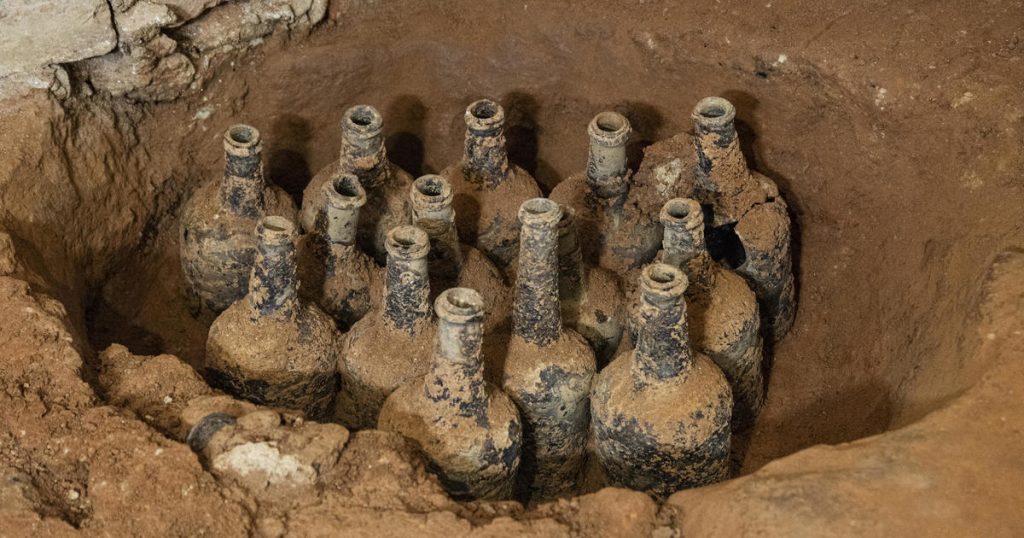Archaeologists made a surprising discovery at George Washington’s Mount Vernon home, uncovering 35 glass bottles of preserved cherries in the cellar. This find was made during ongoing renovation projects at Mount Vernon, with 29 of the bottles found intact. The cherries, which also included gooseberries and currants, had been hidden in five storage pits for about 250 years. This discovery shed light on the knowledge and skills of the enslaved people who managed food preparations at the estate, including Doll, the cook brought to Mount Vernon by Martha Washington in 1759.
George Washington, who lived at Mount Vernon for most of his life, took over management of the estate in 1754 and oversaw significant expansions and additions to the property. The Washington family relied on hundreds of enslaved individuals to operate Mount Vernon and run day-to-day activities. The bottles of cherries found buried in the cellar provide a unique glimpse into plantation foodways and 18th-century culinary practices. It is believed that these artifacts have not been unearthed since before the American Revolution, potentially forgotten when Washington left Mount Vernon to lead the Continental Army.
The quality of the preserved glass bottles allowed researchers to examine the cherries, which still contained intact fruit, pits, and pulp. This presented a rare opportunity to study the origins of American cuisine and gain insights into the 18th-century environment. Analysis of a small sample of the cherries revealed 54 pits and 23 stems, with researchers hopeful that DNA extraction and possible germination could be conducted. The discovery of these preserved cherries adds to the historical record of Mount Vernon and highlights the culinary traditions of the time period.
Mount Vernon President Doug Bradburn expressed astonishment at the archaeological find, stating that it surpassed their wildest dreams. This unexpected discovery has sparked further interest in the food preparations and practices of the enslaved individuals who managed Mount Vernon’s kitchen. The meticulous preservation of the cherries and the careful execution of bottling them indicate a level of skill and knowledge that was typical of the time. The significance of these artifacts lies in their ability to contribute to a deeper understanding of American history, cuisine, and the daily lives of those who resided and worked at Mount Vernon.
In conclusion, the unearthing of 35 glass bottles of preserved cherries in the cellar of George Washington’s Mount Vernon home has provided a valuable glimpse into the culinary practices and foodways of the 18th century. This discovery not only sheds light on the enslaved individuals who were instrumental in managing the estate’s kitchen but also offers insights into the daily lives and routines at Mount Vernon. The well-preserved cherries present a unique opportunity for further research and analysis, potentially uncovering new information about American cuisine and history. The significance of this find lies in its ability to enhance our understanding of the past and contribute to the ongoing narrative of Mount Vernon’s legacy.


